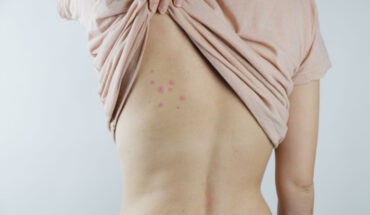The future of skin care: Latest dermatological treatments: It is widely known that the appearance of our skin can have an enormous influence on our self-esteem, confidence, and even mental health.
Tackling such issues as acne, scars, pigmentation, and ageing is a long and tiring battle for millions of women and men around the world. Luckily, the technology in the dermatology industry is fast evolving, and the latest treatments available are increasingly effective. This article will look into the available skin care procedures for different issues.

Advanced acne treatments
Acne, a prevalent skin concern, has seen significant advancements in its treatment. The latest approach involves a combination of light therapy and topical treatments. Blue light therapy, for instance, targets acne-causing bacteria, while red light therapy reduces inflammation.
However, choosing the right treatment or a combination of methods for each individual is key. According to the leading acne treatment experts, De Felipe London, there are four main factors that cause acne and each must be treated differently. For example, blue light will not help with follicle blockage – microdermabrasion should be used instead. This way, we not only treat active acne, but also prevent
future breakouts.
Revolutionary scar treatments
Scar treatment has evolved with the introduction of laser therapy and microneedling. Fractional laser therapy, a particularly effective method, works by creating micro-injuries in the skin, stimulating the body’s natural healing process and promoting collagen production. This process effectively reduces the appearance of scars, including those caused by acne.
Laser therapy, another highly effective technique, employs different types of lasers to vaporise the skin and treat acne or post-surgical scars. The latest innovations in laser treatment allows this procedure to show results much quicker and shortens the recovery time significantly.
Age spots and pigmentation procedures
The treatment of skin blemishes has been revolutionised with the advent of non-invasive laser procedures and advanced chemical peels. Laser treatments, such as IPL (Intense Pulsed Light), specifically target pigmented areas without damaging surrounding skin. Each session can eliminate up to 70% of spots.
Chemical peels or microdermabrasion have also advanced, with new formulations providing more profound and targeted skin exfoliation. This method essentially removes a layer of skin, reducing age spots and improving overall skin tone.
Skin rejuvenation and anti-ageing therapies
The anti-ageing industry is huge and ever-evolving, although, unfortunately, there are lots of misleading products and treatments that do not work. It is important to understand the reasons behind ageing and what causes premature ageing, so you have realistic expectations for skin rejuvenation treatments.
Most of the latest treatments are focused on stimulating collagen production, which is directly responsible for the structure of your skin. For instance, PRP (Platelet-Rich Plasma) therapy utilises the patient’s own blood components to stimulate skin regeneration and collagen production, while the use of the IPL laser can stop the destruction of collagen in skin for up to 3 months.
Other treatments, such as phenol peel or mesotherapy, can also be used to eliminate skin blemishes or remove light wrinkles. While these methods do not reverse the ageing process, they can help improve the overall tone and appearance of your skin, thus improving your confidence too.
The future of skin care is exciting and promises increasingly effective dermatological treatments to address such issues as acne, acne and age spots, scars, and the quest for rejuvenation. The latest treatments are already proving to be incredibly helpful in boosting the patients’ confidence with procedures that are fast and less invasive. However, it is of paramount importance to choose a reliable dermatology clinic that will choose the most effective treatment plan for your specific needs and issues.
- HPV Vaccine’s Effectiveness Remains High Amidst Uptake Concerns - 26th April 2024
- Global immunization has saved at least 154 million - 26th April 2024
- Top Tips To Detox Your Mind and Body - 26th April 2024






